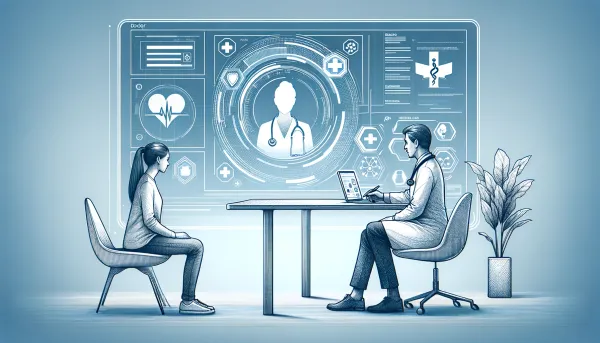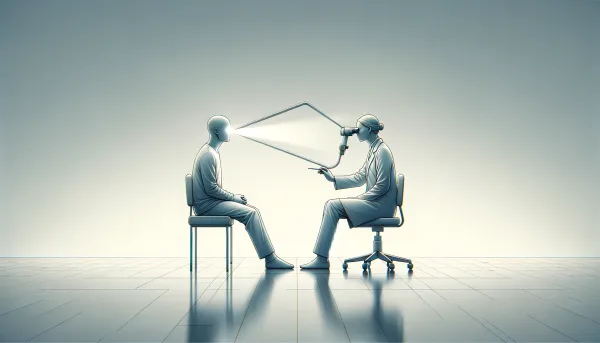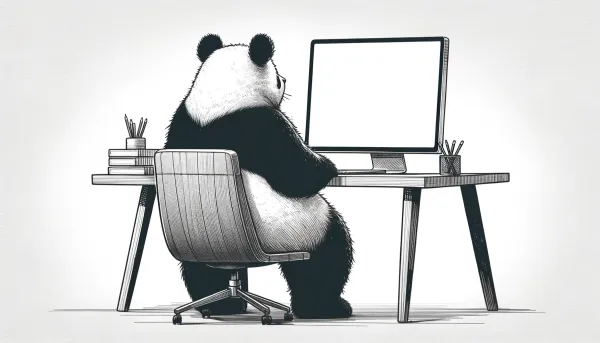Population, Angela Merkel, Economy and Chocolate
Population growth, a video of Angela Merkel, the economy, chocolate and some thoughts on research and education.

In the 7th issue of Sunday MashUp, I decided to go a little bit away from pure medicine. Anyway, it includes some facts about population growth, a video of Angela Merkel, the economy, chocolate and some thoughts on research and education.
Population
About 2 years ago I read a book called Factfulness by Hans Rosling. The subtitle is "Ten Reasons We're Wrong About the World – and Why Things Are Better Than You Think”. It’s amazing and I recommend you give it a shot. Today, I want to share 4 graphs from this book. They are crucial for understanding how the world population will change in the coming decades.
First, there’s the misconception that the population will grow exponentially and never stop. In 2017, there were 7.4 billion of us and the rate of growth was (probably still is) at its highest. Such a graph would look like this:
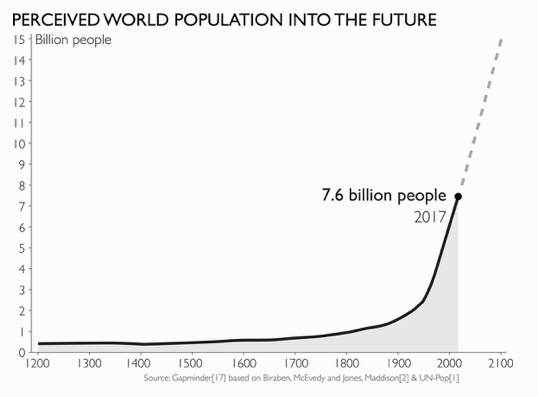
However, this is not the case. This is a common way in which we interpret such graphs. The correct population graph looks more like this:
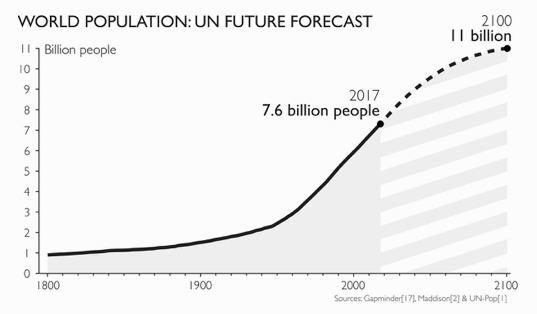
It’s estimated that the world population will reach approximately 12 billion. And that’s it. Why is that? It has to do with demographics. As more of the world population becomes better developed, fewer and fewer children will be born every year. There will be, however, more and more older people. This is what we get by adding this to the graph above:
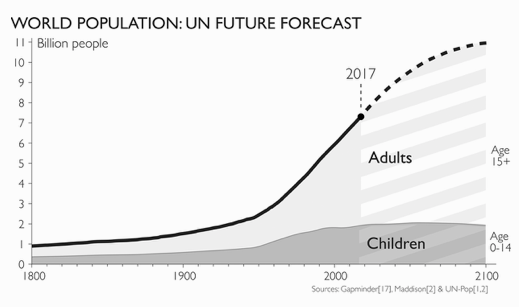
Yes, the number of children in the world will reach a plateau and they will live longer as the world develops. This is because, in developing countries, women have more children than women in the developed ones. In 2017, the average number of children per woman was 2.5. And the number is expected to fall even more.
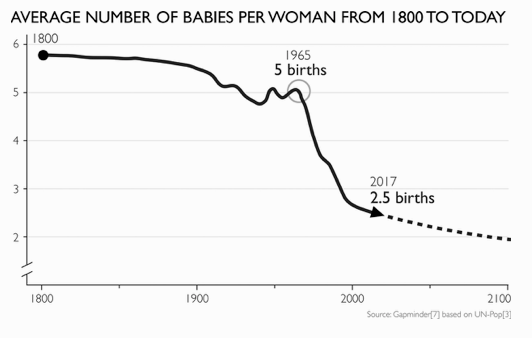
When I first read the book this opened my eyes about the population. And there are tons of other practical explanations of where we’re commonly mistaken. Check it out on Goodreads.
COVID-19
The German chancellor, Angela Merkel, marvellously explained the exponential growth. She gave examples of when the German healthcare system will become overwhelmed in different reproduction factors (R0) of the virus. If the R0 is 1.1 this will happen in October. If it's 1.3 it will happen in June. What struck me was that she was able to explain the dangers of an R0 bigger than 1 in a way that anyone can understand. Maybe it has something to do with her education in physics and a doctorate in quantum chemistry.
The pandemic will have (and already has) an impact on the economy. No one yet is quite sure what that will look like. It’s no secret that the stock global markets have all been in a pretty steep decline.
The New York Times published a great article on the topic. We never know what will cause a crisis and how the crisis will unfold. They compare this pandemic with the 2008 global financial crisis and even the period of the Spanish Flu. But the second point that was interesting to me was that most countries will strive towards being more independent when it comes to producing goods. It’s a kind of de-globalisation trend. Here’s the article.
Chocolate
Night-workers, transcontinental travellers and individuals that shift their sleep timing a lot of times suffer from circadian desynchrony. Their inner clock is not in line with the time of day. This makes them susceptible to many metabolic diseases, cancer and so on. But that’s beside the point.
Nature published an interesting research paper that wanted to see how chocolate effects the desynchrony. They either gave rats chocolate in the morning or the evening. The chocolate in the morning accelerated the adoption of the correct circadian rhythm, whereas chocolate in the evening did the opposite.
As always, if you want to read the paper in detail, here’s the link (it’s open access).
Research and education
I came across a medical researcher Arturo Casadevall in the book Range by David Epstein. Casadevall is all about bridging different areas into something new. That’s how he made many discoveries in the field of immunology and microbiology. This is a passage I liked and I couldn’t agree more with:
When Casadevall described his vision of broad education on a professional panel in 2016, a copanelist and editor of the New England Journal of Medicine (an extremely prestigious and retraction-prone journal) countered that it would be absurd to add more training time to the already jam-packed curricula for doctors and scientists. “I would say keep the same time, and deemphasize all the other didactic material,” Casadevall said. “Do we really need to go through courses with very specialized knowledge that often provides a huge amount of stuff that is very detailed, very specialized, very arcane, and will be totally forgotten in a couple of weeks? Especially now, when all the information is on your phone. You have people walking around with all the knowledge of humanity on their phone, but they have no idea how to integrate it. We don’t train people in thinking or reasoning.”

